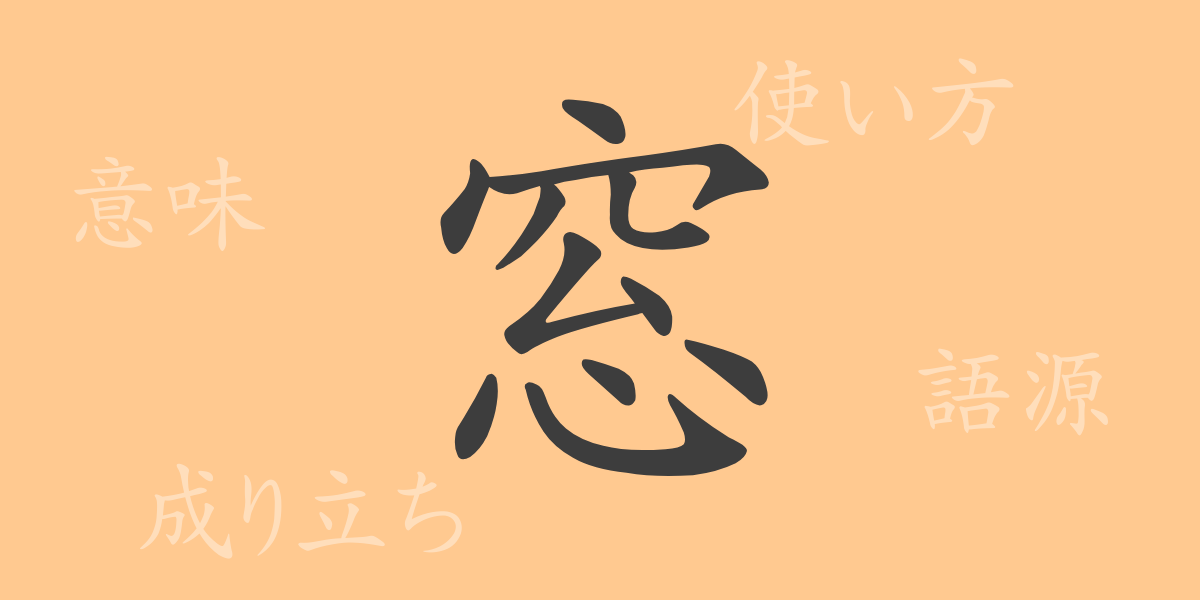Windows (窓 – まど, mado) are not merely architectural elements; they are deeply ingrained in our lives as “the eyes of a home,” bringing in light, allowing air to circulate, and connecting the inside world with the outside. This article explores the Kanji ‘窓’, its historical background, meanings, usage, and extends into phrases and proverbs that reflect its significance in Japanese life.
Origins of 窓 (まど – Mado)
The Kanji ‘窓’ originated from ancient China and has been used in Japan for many centuries. Originally representing a hole in the wall of a building that allowed light to enter, its form has evolved over time to now commonly refer to glass-covered openings. The character initially signified a bird’s nest but expanded to denote various types of shelters or temporary resting places for people.
Meaning and Usage of 窓 (まど – Mado)
While ‘窓’ directly refers to an opening in a building wall, it also metaphorically describes places where information and culture are exchanged. For example, an information exchange hub can be described as an ‘information window,’ showing that ‘窓’ can signify both physical and abstract spaces.
Reading, Stroke Count, and Radical of 窓 (まど – Mado)
‘窓’ is a commonly encountered Kanji in everyday Japanese, fundamental for understanding its structure and implications in language learning.
- Reading: On’yomi ‘ソウ’ (Sou), Kun’yomi ‘まど’ (mado)
- Stroke count: The character ‘窓’ consists of 11 strokes.
- Radical: The radical of ‘窓’ is 穴 (あな, ana), related to ‘hole’.
Phrases and Proverbs Using 窓 (まど – Mado) and Their Meanings
‘窓’ appears in numerous idioms and proverbs, each imbued with unique significance:
- 窓口 (まどぐち, madoguchi) – Refers to a point of inquiry or service, such as a help desk.
- 窓際族 (まどぎわぞく, madogiwa zoku) – Describes employees who are sidelined within a company, often given a desk by the window away from central responsibilities.
- 窓を開けて寝る (まどをあけてねる, mado wo akete neru) – Literally means to sleep with the window open but can also suggest an attitude of openness to new ideas.
Conclusion on 窓 (まど – Mado)
The Kanji ‘窓’ holds more than its architectural significance; it embodies elements that bring light and fresh air into our interiors and allows us to enjoy external views. Beyond architecture, it symbolizes the exchange of information and emotions in the realm of language, playing a crucial role as a symbol of interaction and exchange. The character ‘窓’ encompasses these diverse aspects, continuing to be an indispensable part of our lives and language.

























